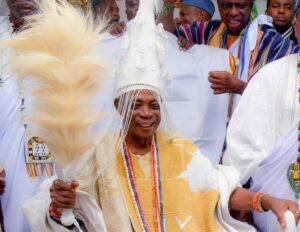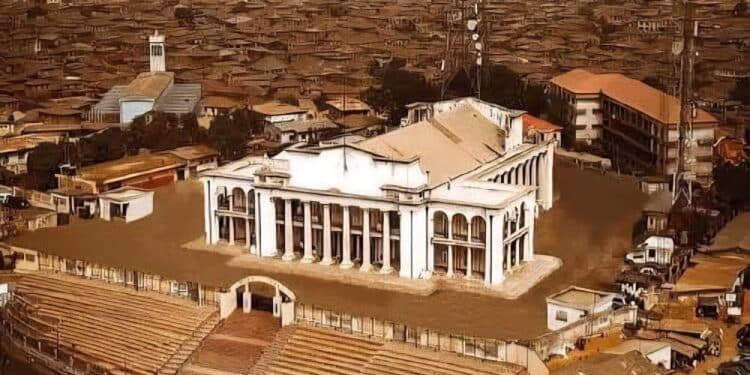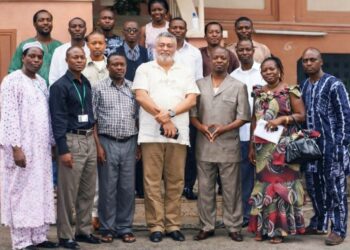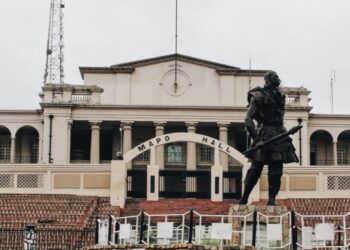Ibadan. The name itself, a melodic whisper across the savannah, evokes images of terracotta roofs, bustling markets, and a vibrant cultural tapestry woven over centuries. As the largest indigenous city in the world, Ibadan is far more than just a sprawling metropolis; it’s a living testament to the tenacity, adaptability, and enduring spirit of the Yoruba people. Understanding Ibadan requires not just geographical awareness, but a deep dive into its layered history, complex social structures, and the ongoing struggle to balance tradition with the relentless tide of modernity.
A Crucible of History, A Fortress of Tradition
Ibadan’s narrative is inextricably linked to the Yoruba Empire’s tumultuous past. Emerging as a war camp in the 19th century, it quickly became a strategic power, skillfully navigating the inter-tribal conflicts and slave trade that ravaged the region. This genesis shaped its character, forging a culture of resilience, resourcefulness, and a strong sense of community. The city’s famed “Agbo’s” – compounds housing extended families – remain a potent symbol of this kinship, offering a crucial support system that has sustained generations.
This history continues to resonate in the city’s built environment. The iconic Mapo Hall, perched on a hill, offers a panoramic view, reminding residents of Ibadan’s military prowess. The ancient city walls, though fragmented, whisper tales of defense and the constant struggle for survival. And the bustling Dugbe market, a sensory explosion of commerce and social interaction, embodies the city’s indomitable entrepreneurial spirit.
The Tapestry of Culture: Weaving the Past into the Present
More than just bricks and mortar, Ibadan thrives on its rich cultural heritage. The vibrant language, Yoruba, is the lifeblood of daily interactions, while the pulsating rhythms of “fuji” and “juju” music spill from every corner. The elaborate traditional ceremonies, particularly the annual “Egungun” masquerades, are not mere performances; they are sacred rituals that connect the living with the ancestors, reaffirming the enduring power of tradition.
This cultural richness, however, is not a static relic. Ibadan is a dynamic melting pot, constantly evolving as it absorbs influences from the global landscape. The rise of Nollywood, with its Ibadan-centric narratives and star power, is a testament to this adaptation. The embrace of modern education, alongside the preservation of traditional values, demonstrates a pragmatic approach to progress.
Navigating the Challenges of Modernity
Despite its enduring strength, Ibadan faces significant challenges in the 21st century. Rapid population growth has strained infrastructure, leading to issues with waste management, traffic congestion, and access to essential services. The pervasive influence of corruption and political instability can hinder development and erode public trust. The struggle to create economic opportunities for its burgeoning youth population remains a persistent concern.
These challenges are amplified by the city’s unique position as an indigenous hub. Preserving cultural identity while embracing globalisation presents a complex balancing act. The pressure to modernize infrastructure and urban planning can sometimes clash with the desire to protect historic landmarks and maintain the unique character of the city.
A Future Forged in Resilience
Yet, amidst these difficulties, the spirit of Ibadan shines through. Its citizens, known for their warmth, hospitality, and unyielding determination, are actively working to build a better future. Community initiatives focused on waste management, education, and entrepreneurship are gaining momentum. The vibrant arts scene is flourishing, providing a platform for creativity and self-expression.

The success of Ibadan’s future hinges on a multifaceted approach
Sustainable Urban Planning: Implementing comprehensive urban planning strategies that address infrastructure deficiencies, manage population growth, and prioritize environmental sustainability.
Economic Diversification: Fostering a diverse economy that creates opportunities for young people, reduces reliance on government funding, and promotes entrepreneurship.
Cultural Preservation: Supporting and celebrating Ibadan’s rich cultural heritage, ensuring it remains a vital part of the city’s identity, attracting tourism and boosting civic pride.
Good Governance: Combatting corruption, promoting transparency, and fostering a participatory approach to governance, empowering citizens and building trust in institutions.
In conclusion, Ibadan is more than just a city; it’s a living, breathing testament to the power of resilience. It is a place where tradition and modernity collide, where the echoes of the past resonate in the present, and where the future is being forged in the crucible of its unique heritage. As Ibadan navigates the complexities of the 21st century, its enduring spirit, its unwavering commitment to its people, and its profound cultural legacy will undoubtedly guide it towards a brighter, more sustainable future, solidifying its place as a unique and invaluable treasure of the world. It is a city that deserves to be both understood and celebrated, a place where the journey itself is a lesson in enduring strength and unwavering hope.










